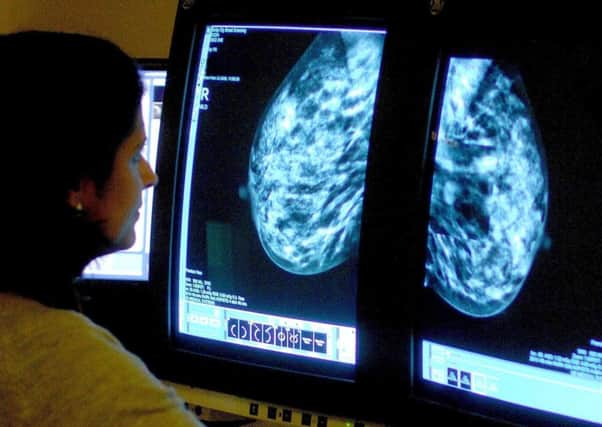Action needed to stop region’s ‘perfect storm’ of cancer causes


Government statistics suggest a north-south divide in the incidence of all types of cancer, with people living in the north west, north east and Yorkshire and the Humber more likely to be diagnosed than those living in London and the east, which has the lowest levels.
The number of new cases in England has almost doubled over the last 40 years, with the rate of diagnoses also increasing by 41 per cent over the last decade, figures from the Office for National Statistics (ONS) show.
Advertisement
Hide AdAdvertisement
Hide AdThe majority of cancer cases are registered in the older age groups, with almost half of all cases within the 70-plus age bracket.
Breast, prostate, lung, and colorectal cancer accounted for over half of the malignant cancer registrations in England, which was reflected in the regional picture, where cervical cancer also featured highly.
In total, there were 292,680 cancer diagnoses in England in 2013, which represents an average incidence rate of 601 cases per 100,000 people. In Yorkshire, that figure equated to 617 - the third highest in England.
Charles Rowett, chief executive of charity Yorkshire Cancer Research, said while the higher prevalence is something that had been know for some time, there were stark variations across the region in both incidences of diagnoses and survival rates.
Advertisement
Hide AdAdvertisement
Hide Ad“The most shocking thing is that while the figures for outcomes are very good in places like North Yorkshire or the East Riding, in Hull and the Humber, South Yorkshire and West Yorkshire, they are among the worst in the country, particularly for lung, bowel, bladder and breast cancer,” he said.
“Yorkshire has a perfect storm when it comes to the causes of cancer - an ageing population, social deprivation causing poor diet and high alcoholism levels, and our industrial history. This is coupled with the fact that national agencies are not investing in research in the county, and instead concentrating on London and the south east, and there is a clear correlation between how much research you are doing in a region and outcomes there.”
He warned the problem is only going to worsen, with research predicting cases of cancer will double by 2030.
“If we wish to close the gap between outcomes here and the rest of the country, we have to focus on the problems we can fix in Yorkshire rather than waiting for the next miracle drug to come along,” he added.
Advertisement
Hide AdAdvertisement
Hide AdThe ONS figures also revealed that men were more likely to be diagnosed than women.
In males aged 15 to 49, testicular, skin melanoma, and bowel cancer were the three most common cancers registered, while breast, skin melanoma and cervical cancer were the most common in women.
Leukaemia, brain, non-Hodgkin’s lymphoma (males), and kidney (females) were the most common cancers in children aged 0-14, accounting for more than half of the 1,359 cases registered in children in 2013.
A Department of Health spokeswoman said: “An ageing population means the NHS is seeing more cancer patients than ever before. Despite this, survival rates are at a record high.
“We want to be the best in the world for cancer care and know early diagnosis is crucial. We are working to raise awareness and help the public spot the signs of cancer as early as possible.”